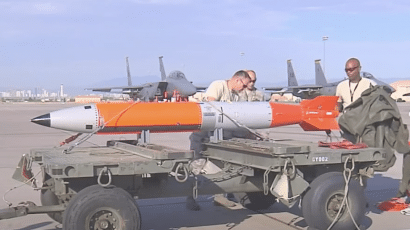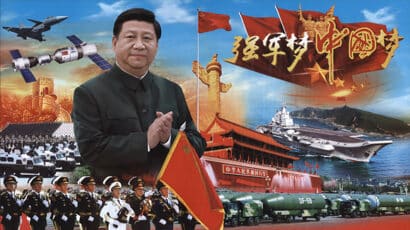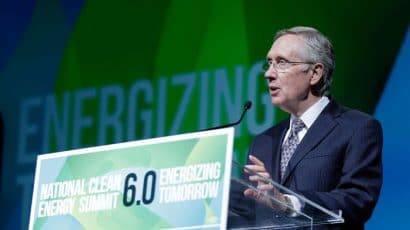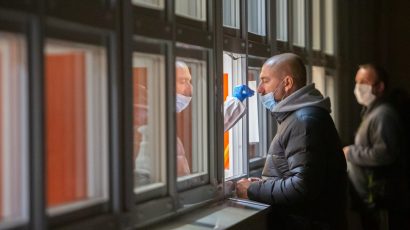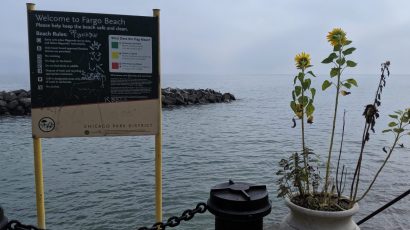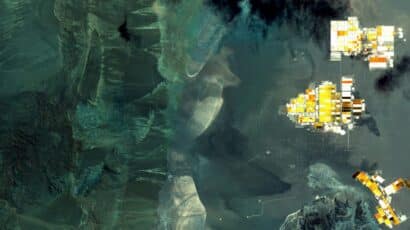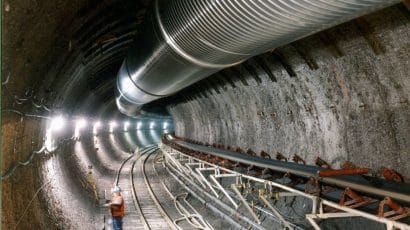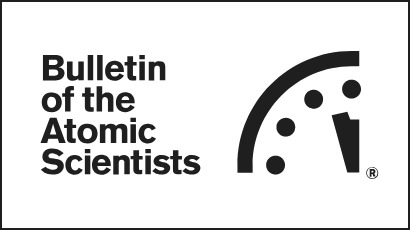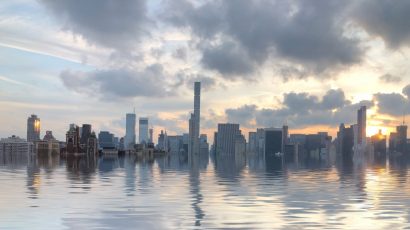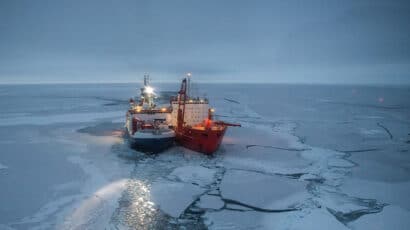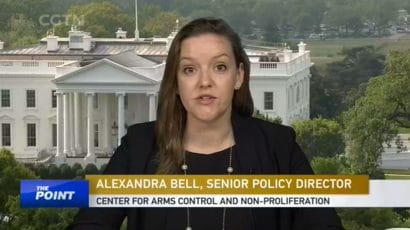Search results for
Collateral damage: American civilian survivors of the 1945 Trinity test
The Trinity test site was chosen, in part, for its supposed remove from human inhabitation. Yet nearly half-a-million people were living within a 150-mile radius of the explosion, with some as close as 12 miles away. None were warned or evacuated by the US government ahead of time.
Poll: What the American public likes and hates about Trump’s nuclear policies
A new study highlights weak public support not only for many of Donald Trump’s nuclear policies, but also for some longstanding pillars of US nuclear posture. The results also point to some low-hanging fruit for policies that would receive broad public support.
The trouble with Taiwan
There are many dimensions to the unfolding crisis over Taiwan’s future status—and the wisest US policy is one of realism and restraint in order to avert a disaster of global proportions.
Harry Reid’s lowercase “green new deal”
"The New West and the Politics of the Environment," a feature-length documentary for the public television environmental news magazine “Earth Focus,” makes the case for placing former US Sen. Harry Reid and Nevada at the center of a lowercase green new deal struck in a politically purple region of the country.
We’ve analyzed thousands of COVID-19 misinformation narratives. Here are six regional takeaways
A group of researchers at Princeton University collaborated with colleagues around the world to catalogue many of the unique COVID-19-related disinformation narratives that spread in various countries during the height of the pandemic.
Researchers think they know what’s causing record water levels on and flooding around the Great Lakes: climate change
Climate change is likely contributing to flooding, ecosystem changes, and economic damage on the Great Lakes.
Chaos in the oil sector: Not really good news for climate emissions
You might think that the crash in the oil industry is good news for renewables—and for fighting carbon dioxide emissions. It’s a nice idea—but the real story is more complicated.
The high cost of extraction in the Lithium Triangle
Lithium extraction in Chile has depleted water levels in a region already suffering from a climate change-induced megadrought.
Coronavirus: Accelerating the rise of imitation meat?
Due to COVID-19, the supply chain for meat is buckling. That's leaves an opening for plant-based alternatives from companies like Impossible Foods and Beyond Meat. Sales of alternative meat products in grocery stores went up 264 percent, reported an outside survey.
Opportunities for US-Russian collaboration on the safe disposal of nuclear waste
A group of young Russian and American nuclear professionals surveys the key differences between the Russian and US nuclear waste disposal strategies, identifying specific areas in which collaboration and data sharing could help to resolve important scientific and technical uncertainties.
North Koreans try to trump China—and the United States
Why is North Korea simultaneously testing new missiles and sending envoys to China—and just before the annual dialogues between China and the US? And how would a President Trump handle North Korea's actions?
To reassure Taiwan and deter China, the US should learn from history
The intricate history between the US and Taiwan suggests that a new and effective US policy toward Taiwan needs to include both credible military deterrence of China and clear reassurances for Taiwan.
Climate change could be the next great military threat
The United States currently faces one of its greatest and most misunderstood threats: climate change. And as changing climate patterns affect the water supplies critical to human life and agriculture, as sea levels rise and threaten coastal communities, and as changes in the environment increasingly weaken marginal states, the implications for U.S. defense will only grow.
Decoding the US “secret authorizations” to sell nuclear technology to Saudi Arabia
The Part 810 agreement is a good first step toward making American nuclear energy export more attractive to a foreign buyer like Saudi Arabia, but it must be kept in mind that this is all a first step. Part 810 authorizations do not allow any technology transfer, and therefore, a 123 agreement would have to be signed before any possible nuclear projects could start.
Early adopters in confronting climate: cities
Cities may become the leaders when it comes to responding to the effects of climate change — but that will not be enough to deal with climate change on a global scale.
South Asia is not the most dangerous place on Earth
While the nuclear situation between India and Pakistan is not good, it's been over-dramatized as near-inevitable here in the West, says a noted physicist from the region.
The Ukraine war is affecting vital Arctic research
Due to the Ukraine war, international collaborations with Russia on Arctic research and oversight have been strained—or even broken off entirely. This loss of critical cooperation is compromising efforts to confront mounting environmental risks in the Arctic, from pollution to shrinking sea ice. The cessation of scientific collaboration comes at a precarious moment for the Arctic.
What the presidential candidates should be asked about arms control and nonproliferation
The next president will have to deal with many pressing questions, but few are as consequential as this one: Do we want to live in a world in which the number of nuclear weapons is going up or going down? The American public should be aware of the candidates’ various nuclear weapons plans before they vote.
Global and regional confrontation in South and Southeast Asia
The US remains the single most powerful country and will remain so for some time. Russia is roughly equal only in respect to its nuclear arsenal. China will soon become the world leader in terms of total economic output—but its per capita income level will not soon approximate Western developed countries. So, where do India and Pakistan fit in?
